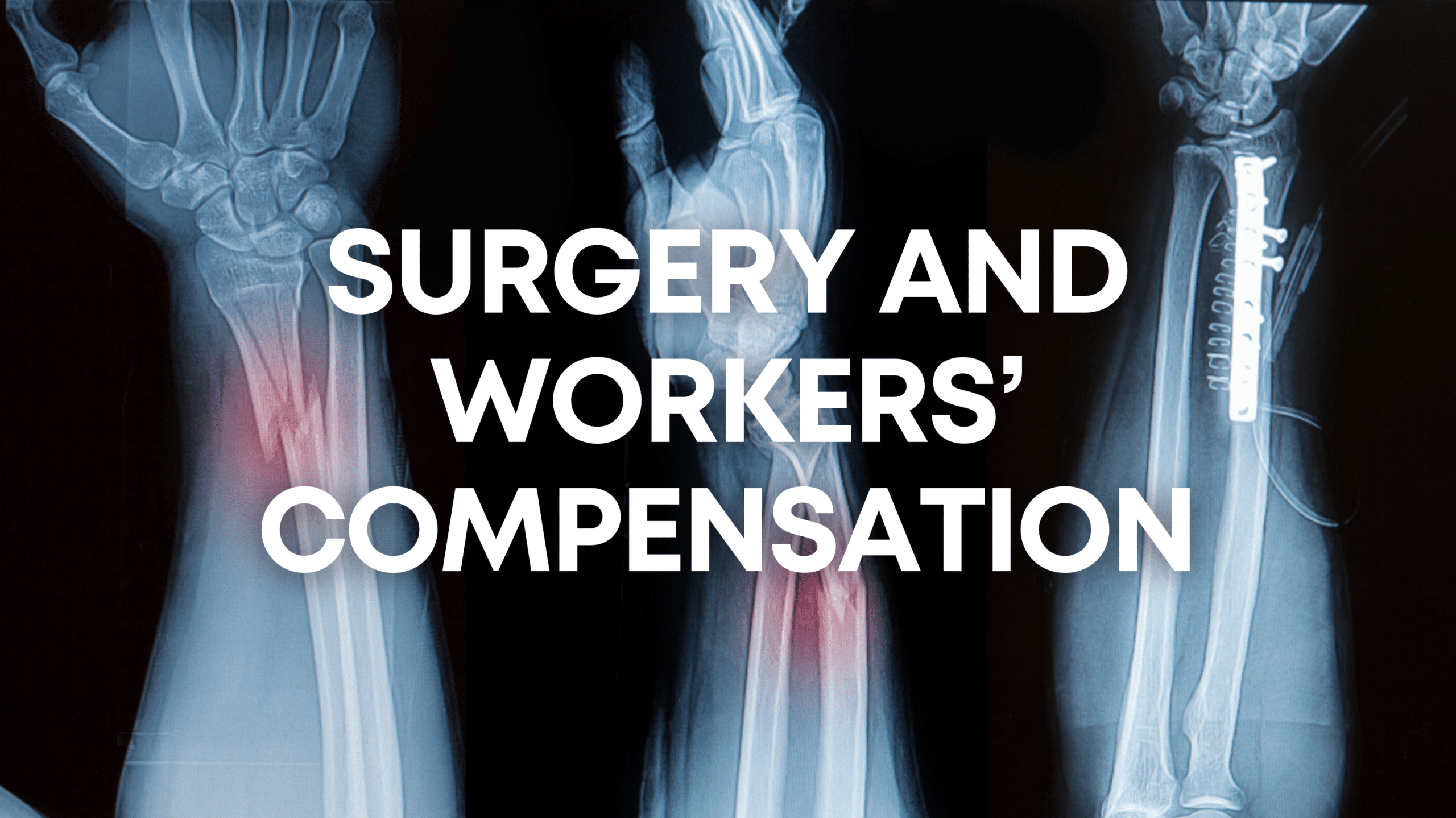
How Surgery Impacts a Workers’ Compensation Settlement
Surgery can impact a workers’ compensation settlement, but it does not automatically increase or decrease the value of a case. Surgery often means the injury is more serious, which can affect medical costs, recovery time, work restrictions, and future earning ability. All of those factors are considered when a workers’ comp case is evaluated.
Surgery can also affect how long a case stays open and whether a settlement is appropriate before or after recovery is complete.
How surgery affects workers’ compensation benefits
When a work injury requires surgery, workers’ compensation is generally responsible for covering the cost if the injury was accepted and the surgery is related to the work injury. Surgery is usually recommended only after other treatments have not provided enough relief.
Recovery after surgery often means time away from work. During that time, injured workers may receive wage replacement benefits. If a worker returns on light duty and earns less than before, workers’ compensation may help cover part of the wage difference. Benefits can change as recovery progresses.
Surgery, recovery, and Maximum Medical Improvement
After surgery and rehabilitation, a doctor may determine that an injured worker has reached Maximum Medical Improvement, often called MMI. MMI means the injury has healed as much as it is expected to heal, even if the worker is not fully recovered.
In this video, Attorney Frank Kearney explains what Maximum Medical Improvement means in a workers’ compensation case and why it matters after surgery:
Reaching MMI can affect what benefits continue and whether permanent work restrictions apply. Those restrictions can impact future work options and long-term earning ability.
How surgery can affect settlement value
Surgery does not automatically increase a workers’ compensation settlement. However, cases involving surgery often involve longer recovery times, higher medical costs, and a greater chance of permanent work restrictions.
Settlement value depends on factors such as whether the injured worker can return to the same job, whether lighter-duty work is required, and whether future medical care is needed. Even when surgery is successful, lasting limitations can still affect settlement discussions.
Why surgery makes workers’ comp cases more complex
When surgery is involved, workers’ compensation cases are often reviewed more closely by insurance companies. Delays, disputes, and additional medical evaluations are common. Decisions made during this stage can affect both benefits and long-term outcomes.
Call Donahoe Kearney Today
If you were injured at work and surgery is part of your workers’ compensation case, getting answers early matters. Delays can affect both your recovery and your financial stability.
At Donahoe Kearney, we help injured workers understand how surgery impacts benefits and settlements. We handle the insurance company so you do not have to.
Call 202-393-3320 or book your free consultation here: Book Free Consultation.